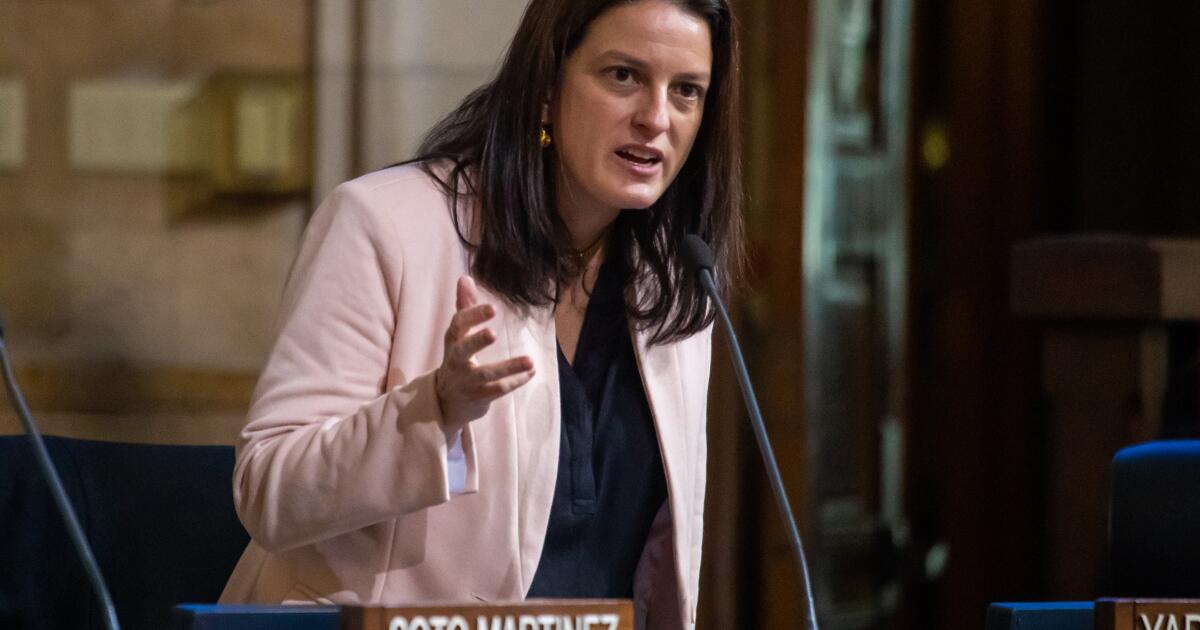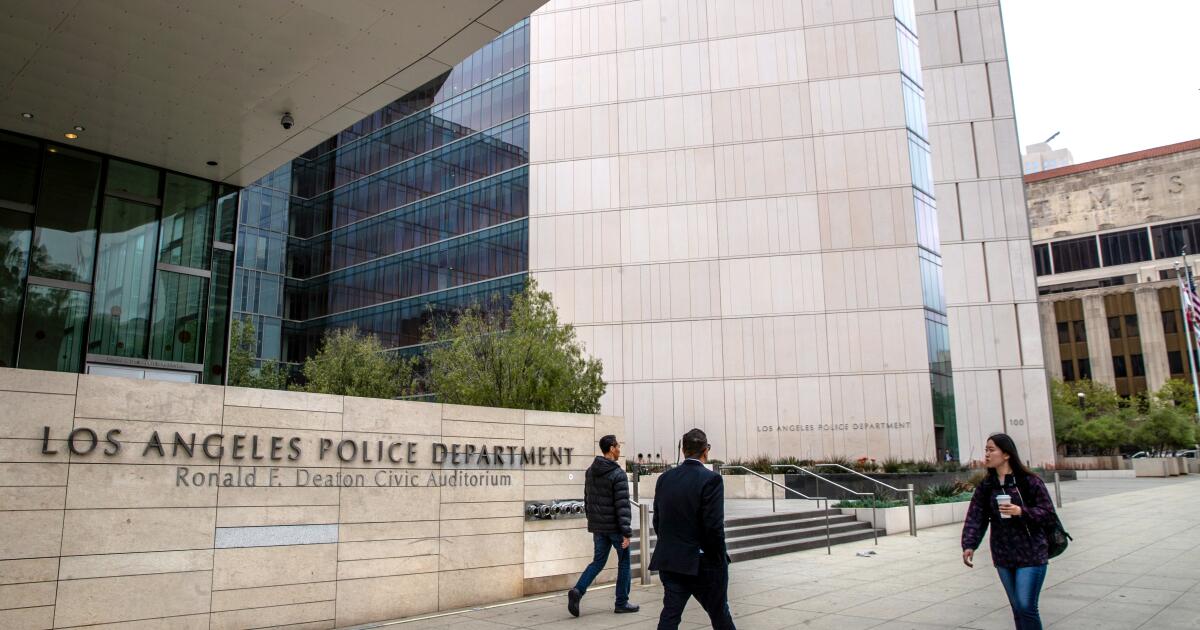L.A. council panel scales back the number of proposed city layoffs
A key committee of the Los Angeles City Council voted Friday to cut the number of employees targeted for layoff by Mayor Karen Bass by more than half, bringing the total down to an estimated 650.
The council’s budget committee took steps to save more than 1,000 jobs by pursuing an array of cost-cutting measures, such as hiring fewer police officers and scaling back funding for Bass’ Inside Safe program, which moves homeless people into temporary or permanent housing.
Councilmember Katy Yaroslavsky, who chairs the committee, said those and many other moves would help the city protect core services, including tree trimming, street resurfacing, street light repair and sanitation teams that address illegal dumping.
“We looked for ways to save positions — not for the sake of job counts only, but to make sure the departments can still do the work our constituents need them to do for their quality of life,” said Yaroslavsky, who represents part of the Westside.
The committee’s recommendations for the proposed 2025-26 budget now head to the full council, which is scheduled to take them up on Thursday.
Councilmember Eunisses Hernandez, who sits on the committee, expressed some optimism after the vote.
“We were in very rough waters, and a very different landscape, when we started this process,” said Hernandez, who represents part of the Eastside. “And now there seems to be some light between the clouds.”
As part of Friday’s deliberations, the budget committee voted to recommend a slowdown in sworn hiring at the LAPD, which would leave the agency with 8,400 officers by June 30, 2026. That represents a reduction of about 300 from the current fiscal year and 1,600 compared with 2020.
The budget committee also agreed to eliminate 42 emergency incident technicians at the fire department, a move opposed by interim Fire Chief Ronnie Villanueva, while also canceling Bass’ plan for a new homelessness unit within that agency.
In addition, the five-member panel recommended a hike in parking meter fees, which is expected to generate $14 million in the upcoming fiscal year.
Yaroslavsky said the changes endorsed by the budget committee on Friday would save about 150 civilian workers in the police department.
Chief Legislative Analyst Sharon Tso, who advises the council, said she believes that city officials will keep finding ways to reduce the number of layoffs, by transferring workers to vacant city positions or to agencies that are unaffected by the budget crisis, such as Los Angeles World Airports and the Port of Los Angeles.
“I think we’re going to be able to truly get that number down to less than 500,” she told the committee.
Bass, faced with a nearly $1-billion shortfall, released a proposed budget last month that called for the layoff of about 1,600 employees, a fourth of them civilian workers at the LAPD. Some of the largest reductions were planned at agencies that handle sanitation, street repairs and maintenance of city facilities.
Friday’s deliberations set the stage for many positions to remain intact, particularly at the Department of City Planning, which had been facing 115 layoffs. Kevin Keller, executive officer with that agency, said the committee found the funding to restore more than 100 of those positions.
“I know there’s a lot of city workers that are breathing a big sigh of relief tonight,” said Roy Samaan, president of the Engineers and Architects Assn., whose union represents planning department employees.
L.A.’s budget crisis has been attributed to a number of factors, including rapidly rising legal payouts, lower-than-expected tax revenue and a package of raises for the city workforce that is expected to add $250 million to the upcoming budget, which goes into effect on July 1.
Bass and the council have been hoping to persuade city labor unions to provide financial concessions that would help avoid more cuts. So far, no deals have been struck.
On Friday, before the committee began its deliberations, Bass said she is optimistic about avoiding layoffs entirely. At the same time, she spoke against a budget strategy that pits the hiring of police officers against the preservation of other jobs, calling it “a Sophie’s Choice.”
If the LAPD slows down hiring, it will have fewer officers in the run-up to next year’s hosting of the World Cup, she said.
“I’m not going accept that as my choice,” she said.
During the final minutes of Friday’s five-hour meeting, council members made some last-minute restorations, identifying additional funds for youth programs, tree trimming and fire department mechanics. Hernandez pushed for the committee to restore $1 million for Represent LA, which provides legal defense of immigrants facing deportation or other enforcement actions, and $500,000 for graffiti paint-out crews.
Hernandez said the city needs to stand by immigrants amid a harsh federal crackdown. And she described graffiti removal as crucial for public safety in her district.
“Getting graffiti down quickly prevents a lot more people from getting shot, prevents them from getting killed,” she said.

